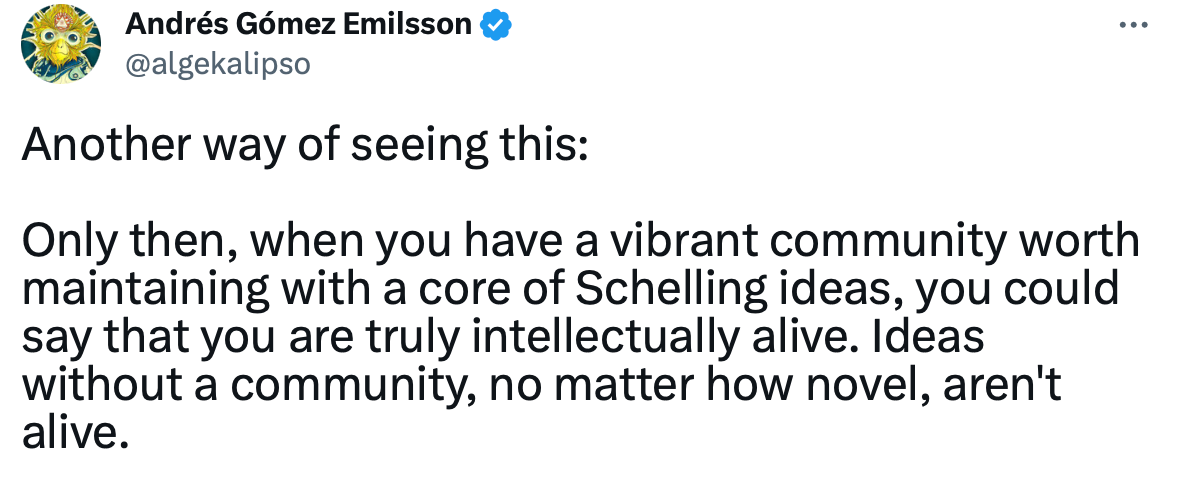June Subscriber Post
How are you doing?
Dear readers, this is a check-in to get a sense of what you’d like to see more of, as well as an update about my plans for this blog. So please comment to let me know what you find compelling and would like to see developed more.
I was recently talking to a reader who suggested the best bang for buck would be to go on podcasts where I can give the 1-hour version to many audiences. This would serve to sharpen EToC as well as enter other conversations.
As luck would have it, EToC is a shoe-in for both Joe Rogan and Jordan Peterson. The Snake Cult of Consciousness is the most compelling version of the Stoned Ape Theory (IMO!), and Rogan is the theory’s greatest proponent. Peterson’s Ph.D. student actually did a dissertation similar to mine, trying to establish a connection between word vectors and the Big Five. It will be of interest to Peterson that work led me to a quixotic take on archetypes such as the Mother Goddess and the Ouroborus.
But I’m not going to start at the top! One very helpful thing you can do for me now is to suggest EToC as a topic to your favorite podcast host. EToC’s got drugs, sex, and snake oil; the appeal is broad!
The reader in question happened to be a Founding Member, which is very generous. Right now there are no tangible benefits to becoming paid, but it is a leveraged position on a scientific theory with a huge upside for humanity and no home besides Substack. So please help me spend more time on this. Become an old-fashioned patron of the arts.
Vectors of Mind podcast?
From the beginning, I told myself that if I got to 1,000 readers I would start a podcast interviewing scientists I found interesting even if it has nothing to do with my background. For example, I live in the Yucatan Peninsula which has a bunch of Mayan ruins buried in the Jungle that they are now finding using satellite imaging. We also have a huge Sargassum problem and there are companies that are trying to build processes that turn the seaweed into fertilizer and electricity. Or, I met a Mayan tour guide, Jesus, who has an interesting backstory. One thing that annoys me is the power law in scientific communication, that a few people just dominate the conversation. As a science communicator with deeper scientific knowledge than most, I can sus out people who have expertise without relying on the network effects of “who has given interviews on the subject before?”.
Now, of course, I’m interested in snake cults and consciousness. It would be fun to have those experts on, as well as my old stomping grounds of ML. Let me know if you have any suggestions. We’re almost at 1,000.
What I’m reading
Currently, it’s I am a Strange Loop and Myths of the Dog-Man. Loops, because this is one of the (many) texts that makes a case that consciousness relies on recursion (which I think emerged with Eve). Dog-man because I’m interested in how long myths can last, and dogs as psychopomps are some of the oldest myths. See for example:
I recently finished The Immortality Key, which argues for continuity between Christianity and the earlier Meditteranean mystery cults. These, Muraresku claims, were psychedelic in nature, and possibly trace back to Gobekli Tepe. (One thing that could really tie all those together is SNAKES.) I highly recommend Peterson’s interview with the author, Brian Muraresku, and Professor Ruck. Ruck published The Road to Eleusis: Unveiling the Secret of the Mysteries in 1978, where he and the inventor of LSD argued that the Greek mystery cults involved psychedelics. This brought him considerable career troubles at Boston University (my alma mater), which did not want to be associated with those damn hippies. But he was probably right! I see these things in terms of biological levers and psychedelics are a natural lever for a secret society interested in the mysteries of the universe.
Snake venom
Speaking of levers, what about snake venom? I’ve already done two posts about it’s psychedelic potential, so probably won’t do another. But there is fascinating current research on how it increases brain plasticity. For example:
This Editorial highlights an impressive study by the group of Prof. Ashis K. Mukherjee, a renowned specialist in snake venoms, in which a component of the Indian Cobra N.naja venom with no significant similarity to nerve growth factor, is shown to induce sustained neuritogenesis.
Neuritogenesis is the process by which neurons produce neurites, which are projections that emerge from the cell body of the neuron. These projections will become axons and dendrites, the structures through which neurons send and receive signals. The interest is that snake venom is known to include nerve growth factor (which also results in neuroplasticity), but they are finding whole new compounds in venom that accomplish the same. They have recommendations for developing this to treat neurodegenerative diseases. I’m of the opinion it’s how we first became human, and maybe a couple of doses are still helpful.
My just-so theory for growth factor being a part of venom is that cobras primarily want to deter predation; they aren’t concerned with killing their predators. It may be biologically cheaper to deliver a nonlethal dose of poison + compounds that make it easier for the predator to “learn a lesson” (ie, rewire the brain)1. The same could apply to the strain of psilocybin mushrooms, the Golden Teachers. They are trying to teach you a lesson: don’t eat me.
Year in Review
The latest post is an in-depth argument about the same arc from AI to Eve. Interesting to the Econ crew, I hope, who are always looking for ways AI is changing fundamental science:
Comment
So leave a comment, and tell me what you’d like the blog to become or questions you have. In the words of Andrés Gómez Emilsson:
Molecular Evolution of Vertebrate Neurotrophins “The synthesis and secretion of venom proteins is an energetically expensive process [54–56]. Hence, mutations that disrupt the structure/function of proteins are filtered out of the population by negative selection pressures, favouring the conservation of catalytic and structurally important core residues.”
Note that the section Putative role of nerve growth factors in venom suggests that NGF acts as a preservative + perhaps interacts to make other toxins more deadly. Nothing about “teaching a lesson”.





I tuned in for the EToC. Aside from considerations of plausibility of the theory itself (and they are different for different levels of strength of its statement) I've found it fascinating and thought-provoking. And the research around it has been a joy to learn about.
I'd say keep taking me down interesting rabbit holes and unexpected directions and I'll be happy.
Podcasts are a format I haven't managed to consume at a regular rate. Reading I can squeeze in between responsibilities, but podcasts require alone time I don't generally have. But if they come with transcripts that's fine by me.
As for interviewees, I imagine they don't grow on trees. I guess the key question is what are you getting from getting the person on rather than just reporting on their work. I know of a couple of junior European scientists who do some interesting original work. How willing or suitable to do something like this I've no clue. In any case I'd imagine diversity is what would keep that sort of thing interesting? I don't know. Have I mentioned I don't do podcasts a lot?
Have greatly enjoyed the blog so far and would listen to a podcast version for sure.